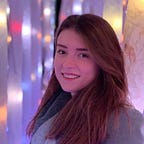The Best Non-Fiction Books I Read in 2020
In a year with lots of spare time for reading, several non-fiction books have helped me broaden my horizons and learn more about the world around me.
This year has been a chance to reflect and think more deeply about the world around us. Whether that be the incredible work of medical professionals, the Black Lives Matter movement or learning more about my subject, this year I have focused on expanding my horizons with the books I’ve been reading.
Here is a list of the five best non-fiction books that I’ve read this year.
When breath becomes air — Paul Kalanithi (2016)
I’d thought I might write a whole article about this book, but I simply couldn’t express my feelings half as eloquently as Kalanithi does in this heartbreaking book. Documenting his journey from stressed medical student to skilled neurosurgeon, When breath becomes air was written by Kalanithi on his death bed after being diagnosed with terminal lung cancer at the age of just 36. Having struggled throughout his career to understand the meaning and life and death, in his final months Kalanithi had a profound realisation about the purpose of the time he has left, leaving his job in the hospital to write his moving story and to spend time with his newborn daughter. An incredibly thought-provoking and sorrowful book, When breath becomes air leaves the reader with an appreciation for our health and happiness and reminds us to enjoy every day as well as focusing on what the future holds.
The History of the World in 21 Women — Jenni Murray (2018)
I really enjoyed this book, completely devoured it! With roughly 10-page sections on some of the most influential and often underrepresented women in world history, this was such an easy book to pick up and be instantly inspired by. Woman’s Hour presenter Jenni Murray does a great job of covering a range of women, from Marie Curie’s contributions to science to the formidable Isabella of Castille who united Spain. Personally, I enjoyed the story of Wangari Maathai, the first African woman to be awarded a Nobel Prize, the most interesting — the journey from her rural family to influential politician and environmental campaigner really encapsulates how when girls are given an education, they can really change the world!
Behave — Robert Sapolsky (2017)
Behave is potentially one of the most detailed books I’ve ever read! Sapolsky goes from the brain activity in the milliseconds before an action, through neuroendocrine modulators, our childhood development, to our genes and family and the evolutionary history of humans, as well as a host of other species to explain why we act the way we do. This book was so interesting even as someone who knows a lot of the basic biology of what is being described. I particularly loved the more overarching chapters of the book — for example, the emerging role of neuroscience in law (‘neurolaw’), and the final chapter, War and Peace, that details how despite the truly dark times of war, we can come together and find commonalities with sworn enemies. Sapolsky is a giant of the behavioural neuroscience field, and his immense knowledge and insight into such a complex and context-dependent topic make for an extremely interesting read, even if it did take some serious reading to get through!
For a more detailed review of Behave, from a neuroscientist’s point of view, here is a post I wrote when I read the book back in April: A Neuroscientist reads… Robert Sapolsky’s Behave.
Superior: The Return of Race Science — Angela Saini (2019)
I’m not a skilled enough writer to do justice to what an amazing book this is. Saini masterfully cuts down arguments that biological racial differences exist, and tackles some of the pervasive racist attitudes in today’s scientists, sociologists and politicians. I learned so much from this book, and it’s made me question some of the scientific research I have read that uses racial groupings to draw conclusions. This is an absolute must-read for anyone working in biological sciences, particularly in clinical studies. And as an aspiring science writer myself, this is a great example of how to write for a general audience but convey complex scientific ideas with simplicity. A superb example of good scientific communication.
Natives: Race and Class in the Ruins of Empire — Akala (2018)
Part autobiography and part political history, Natives is the story of British hip-hop artist Akala, detailing his life growing up as a person of colour in London against the background of decades of racism and discrimination. This book opened my eyes to the challenges of violence, race and class, exemplifying how much further our society still needs to go to tackle racial discrimination. Although at times the style was a bit colloquial and the sentences a tad wordy for my liking, this book was so striking because of its own-voice perspective, with Akala conveying his passion in every single paragraph. An excellent and insightful book that I recommend everyone should read.
You can read more about why I found Superior and Natives so impactful in my blog post about the books I found most impactful in 2020. I’ve also put together a list of the best fiction books I read in 2020, which can be found here.
